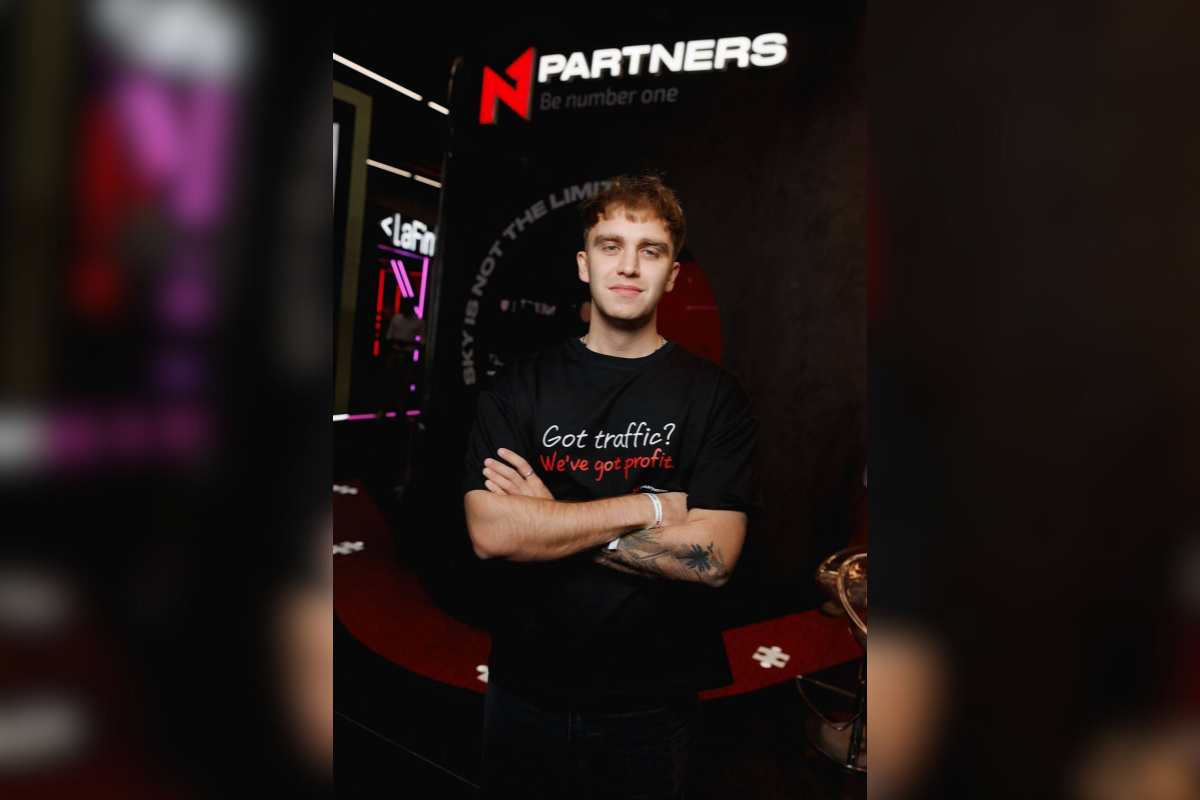News
The UK online casino market is at a crossroads

Martyn Hannah, Managing Director of Comparasino, says the direction the government and regulator take with updates to gambling law will determine the long-term success of the market
Great Britain is approaching a crossroads when it comes to online casino and the direction it takes will ultimately determine the viability of the market for all stakeholders over the next few years, including comparison sites such as Comparasino.
This remains a market with plenty of potential. The latest participation figures from the Gambling Commission show high demand for online casino, sports betting and bingo, with around 10 million people (16% of the population) engaging in these activities.
But the regulatory requirements being put on operators are now impacting the experiences they can offer to players while squeezing margins to the point where the UK – once the benchmark for regulated online gambling markets – is no longer sustainable for some.
In the last three years or so, we have seen an exodus of brands with only a small number of new online casinos taking their place.
This should be cause for concern, especially as the consultations from the White Paper rumble on and the changes that will result come into focus – we’ve already had the £2/£5 slot stake limits confirmed with more updates to follow.
Of course, players must be protected so that those at risk of developing problem play receive the support they need long before they reach the point of crisis. But at the same time, we have to remember that just 0.3% of UK players are considered to have a gambling problem.
The real risk for me is that if regulations and requirements continue to tighten, the UK market will no longer be viable for most brands – only the tier ones will be able to manage the slim margins.
This is bad for player choice and ultimately has the potential to push consumers towards unlicensed brands that can offer the experiences they are seeking and this is the opposite of what the changes to regulations are aiming to achieve.
It’s important to remember what players are looking for when deciding where to play – they want generous bonuses, a seamless sign-up process and a great selection of games to explore. They want to do this with reputable brands they can trust, and that’s why licencing is so important.
But the requirements operators must now meet – and any new requirements set to come into force – are at risk of damaging the player experience to the point where many will turn to unlicensed brands. Remember, these sites usually offer a great customer experience, they just don’t hold a licence.
The other day I was sitting with a friend when they signed up for an online casino for the first time. They were genuinely shocked by the sign-up process, especially the amount of information they had to provide and the length of time it took to register and deposit.
They were especially irked by the need to provide their occupation and monthly income. When I said there were unlicensed sites that offered a more streamlined onboarding process – and bigger bonuses – the friend said they’d play at those brands over the licensed site.
Of course, this is just one example but for me, it should raise concerns about how far we go when it comes to limiting bonuses and imposing stringent affordability checks on operators.
The Gambling Commission has indicated that affordability will be “light touch” for most players, but any additional friction really does risk pushing players to unlicensed sites where the sign-up process is quicker and the bonuses bigger.
The challenge is striking the right balance between consumer experience and protecting the most vulnerable, and I have some ideas for how we can do this.
I think operators should be able to offer the bonuses they wish, but they should not be able to impose high wagering requirements – or any wagering requirements, ideally.
Again, I tried explaining how the wagering requirement works to my friend and they simply couldn’t get their head around it.
“So, I have to wager £975 through the casino to unlock £15 in bonus winnings? That’s ridiculous.”
This is also what leads players to ultimately gamble more than they can afford as they make additional deposits in an attempt to complete the playthrough requirement, only to run out of funds or give up having deposited more than they intended.
This is when players can become frustrated. Many find it hard to understand how wagering requirements work, and then when they can’t withdraw their bonus winnings, it leads to a negative experience with the brand but worse, can put them in a state of mind that’s not ideal for gambling.
Player onboarding needs to be faster and more seamless, too. It’s so clunky right now that operators shouldn’t be surprised that a large percentage of players drop-off between landing at a casino for the first time and spinning the reels.
For context, it took around seven minutes for my friend to find a brand, sign up, deposit and play.
There are technologies available now – I’m talking about open banking here – that would mitigate sign-up friction, but would most likely require regulatory approval for operators to be able to use them to improve the sign-up process.
I absolutely believe that operators should be mandated to monitor each and every player in real time, and benchmark their gambling activity against markers of harm. This is the best way to spot problem play early and then make the necessary interventions.
I also think education is vital, and this is where affiliates must do more. Players are often unaware of the licensing process in the UK, and why it’s important to play at licensed brands. Nor are they aware of the tools in place to help them stay in control of their play.
This is something that we have committed significant resources to, with a dedicated safe gaming hub, responsible play messaging on all of our pages and the Comparasino Blog, where we publish articles and interviews with responsible gambling thought leaders.
The UK has always set the standard for regulated online gambling and I hope that this will continue to be the case once the consultations have closed and the final updates to the law are made.
The market might be at a crossroads, but if it goes in the right direction, it has a long and successful future ahead.
News
N1 Partners’ Sky Dining Event for Top Partners at SiGMA Eurasia

AIBC Eurasia in Dubai, which once again brought together top companies from the iGaming industry, became the first major event for N1 Partners after the grand show event in Barcelona celebrating the end of the N1 Puzzle Promo. So the conference in Dubai was a great opportunity to discuss plans for 2026 and set traffic priorities together with the N1 team.
Of course, N1 Partners couldn’t leave their top partners without a surprise. That’s why the affiliate program organized an exciting gastronomic experience in Dubai – Dinner in the Sky – for the Seven Group media buying team!
Here’s how it went 👇🏼
Listed by Forbes among the world’s 10 most unusual restaurants, Dinner in the Sky offers one of the most unique gastronomic experiences on the planet – a dinner 50 meters high with panoramic views of Dubai. It was exactly this experience that the N1 Partners affiliate team chose to invite their partners from the Seven Group media buying team.
“For us, events like these are more than just gatherings – they’re an opportunity to build truly genuine partnerships, grow closer, and better understand our partners. Dinner in the Sky was the perfect format to discuss plans, exchange ideas, and simply share vivid emotions with our top partners in a relaxed, informal setting. Moments like these lay the foundation for strong, long-term collaborations,” comments Alexa Bond, Head of Affiliates at N1 Partners.
Dinner highlights:
- top partner team
- 90 minutes
- 50 meters above the ground
“We’d like to thank N1 Partners for the invitation to a business dinner where we were able to connect and spend time in a truly pleasant atmosphere. For us, this is a great sign. First, it shows that our traffic is highly valued by N1 Partners. Second, it proves that our partner is committed to developing business relationships through trust and personal interaction.
Many thanks to the N1 Partners team for the warm welcome and attention to detail. We were absolutely delighted and took away so many positive emotions that we’ll be bringing back with us from Dubai!” — shared the Seven Group team.
Getting invited to an exclusive Sky Dining event by N1 Partners is the result of consistent and effective collaboration with the affiliate program. Strong performance deserves a premium approach and special attention to top partners. At N1, partnerships are built on trust, transparent terms, and fast communication – enabling not only traffic scaling, but also going beyond standard cooperation to create truly unique experiences.
“We’ve been working with N1 Partners for almost a year, with the main traffic coming from Google PPC, and during this time we’ve managed to reach solid volumes. Integration is fast, data exchange is stable, and the team is always available – without unnecessary bureaucracy and with full involvement in the processes. In such a dynamic line of work, this is especially important.
We were happy to meet the N1 team offline in Dubai in this format and receive a gift that only подтверждает that our partnership is getting stronger,” shared the Seven Group team.
Catch N1 Partners at the upcoming iGaming conferences worldwide:
- 14+ casino and sportsbook brands with Reg2Dep up to 70%
- 10+ Tier-1 GEOs
- CPA up to €700 and RevShare up to 45% + NNCO for top partners + hybrid models
See you soon!
News
Top Sports Events & Promos by N1 Partners: Where to Drive Tier-1 Traffic in February

N1 Partners expands its sports traffic capabilities. Betting is now available across three brands within the affiliate program’s portfolio: alongside the flagship sports product N1 Bet, RollXO and Lucky Hunter have joined the lineup.
For partners, this opens up new opportunities to work with Tier-1 sports traffic. You can scale volumes on a dedicated betting product while simultaneously running sports traffic on casino brands with already strong conversion rates. This approach allows affiliates to diversify traffic flows, reduce reliance on a single product, and strengthen key performance metrics by combining sports, casino, and seasonal promotional mechanics.
Why Seasonal Events Matter When Driving Traffic
In practice, the most consistent conversion results are achieved when traffic launches are aligned with seasonality, key news hooks, and behavioral peaks in player activity.
February offers a particularly strong combination of factors:
- a packed schedule of top football leagues and tournaments
- the Winter Olympic Games
- seasonal holidays, including Valentine’s Day
- increased emotional engagement from players
During such periods, users are more likely to make deposit decisions, engage with promotions, and return to the product. Timing and the right contextual hook have a direct impact on overall performance.
To simplify campaign planning and help partners make the most of this period, the N1 Partners team has prepared a selection of key sports events and active promotions that are well suited for driving sports traffic.
Key Sports Events in February
11.02.2026
Soccer | Italy, Coppa Italia | Quarter-final | Bologna – Lazio
Ice Hockey | Olympic Games | Slovakia vs Finland
Soccer | England, Premier League | Manchester City – Fulham
Soccer | Germany, DFB Pokal | Quarter-final | Bayern Munich – RB Leipzig
Basketball | NBA | Houston Rockets – LA Clippers
Soccer | CONMEBOL, Copa Libertadores, Qualification, Quarter-finals | 2-nd legs
12.02.2026
Ice Hockey | Olympic Games | Czech Republic vs Canada
Soccer | England, Premier League | Brentford – Arsenal
Basketball | NBA | Orlando Magic – Milwaukee Bucks
Basketball | EuroLeague, Regular Season | Round 28
Rugby League | Super League (England, France) | Regular Season
13.02.2026
Ice Hockey | Olympic Games | Canada vs Switzerland
Basketball | NBA | Oklahoma City Thunder – Milwaukee Bucks
Handball | Germany, Bundesliga | Next Round
14.02.2026
Ice Hockey | Olympic Games | USA vs Denmark
Soccer | England, FA Cup | 1/16-finals
Soccer | Germany, Bundesliga | Werder Bremen – Bayern Munich
Rugby Union | France, Top 14 | Round 17
Handball | Spain, Liga ASOBAL | Next Round
Basketball | Spain, Liga ACB | Round 20
15.02.2026
Ice Hockey | Olympic Games | Switzerland vs Czech Republic
Soccer | Italy, Serie A | Inter – Juventus
Soccer | Italy, Serie A | Napoli – AS Roma
Soccer | Italy, Serie A | Lazio – Atalanta
Soccer | Spain, LaLiga | Girona – Barcelona
Soccer | Spain, LaLiga | Real Madrid – Real Sociedad
Soccer | France, Ligue 1 | Marseille – Strasbourg
Soccer | France, Ligue 1 | Rennes – PSG
Basketball | NBA | ALL-Star
Tennis | WTA 1000 Dubai, United Arab Emirates | Dubai Duty Free Tennis Championships
Active Promotions Across N1 Partners Brands
To boost player activity and support conversion rates during peak dates, N1 Partners is launching seasonal Valentine’s Day promotions across key brands. These campaigns provide partners with additional leverage when driving traffic and engaging users.
Valentine’s Advent Calendar (N1 Bet, RollXO)
Period: 13.02–17.02
Daily rewards available for participants over five days:
- 13.02 Love Box: prize up to €15,000
- 14.02 Valentine’s Riddle Offer: 100% bonus up to €500 + 150 FS
- 15.02 Sunday Challenge: 50% bonus on the 3rd deposit
- 16.02 Road to Free Spins: 30 FS for every €350
- 17.02 Fortune Lottery Series: prize pool €63,000
Cupid Mailbox Lottery (Lucky Hunter)
Period: 09.02–14.02
Prize pool for 28 winners: trip to Paris + €6,400 + 1,400 FS
Why This Matters for Partners
Seasonal promotions and event-driven campaigns help partners address several key challenges when working with Tier-1 traffic:
- encourage higher average deposits
- increase LTV through repeat engagement
- sustain activity during periods when CR typically declines
- integrate smoothly into creative bundles and ad formats
- strengthen the emotional appeal of offers through holidays and major events
In a highly competitive environment, these product-driven initiatives help partners maintain stable and predictable performance.
What Partners Should Do Now
February combines major sports events, seasonal triggers, and strong promotional mechanics into a single high-potential window.
Drive traffic to key sports events and Valentine’s Day promotions across N1 Partners brands: N1 Bet, RollXO, and Lucky Hunter.
The N1 Partners team is ready to provide up-to-date promotions, analytics, and dedicated support tailored to your traffic volumes.
Join N1 Partners
N1 Partners provides everything affiliates need to stay ahead: high-converting products, ongoing analytics with optimization recommendations, and hands-on support from managers focused on long-term performance.
N1 Partners is more than an affiliate program. As a multi-brand affiliate platform and direct advertiser, the company unites 14+ casino and betting brands, operates across Tier-1 GEOs, delivers Reg2Dep rates of up to 70%, and offers competitive deals for top partners — CPA up to €700 and RevShare up to 45%. Trusted by 14,000+ partners, N1 Partners is recognized for its transparency, flexibility, and partner-first approach — where people and communication quality remain the foundation of long-term success.
News
N1 Faces: Dmitry Filippov — What’s Behind Sustainable Growth in Affiliate Marketing?

In iGaming, strong results are rarely accidental. Sustainable growth, scaling, and long-term partnerships are almost always driven by someone who can build processes, stay focused, and make decisions in a fast-changing environment.
In the new episode of N1 Faces, the N1 Partners team introduces Dmitry Filippov, Affiliate Team Lead (SEO) — a specialist working at the intersection of strategy, team leadership, and partner relationships. Dmitry has grown from traffic-focused roles into managing an affiliate direction, and today he’s responsible not only for performance, but also for the way the team builds communication and trust with partners.
Dmitry Filippov
Affiliate Team Lead (SEO), N1 Partners
How did you get into affiliate marketing, and when did you realize this was the field you wanted to grow in?
I first discovered affiliate marketing back in university and joined a team as a junior buyer in the nutra vertical. Since then, I’ve probably created a thousand variations of creatives for “miracle pills” — for potency, joints, blood vessels, you name it.
After graduating, I applied to around 400 jobs and eventually got an offer as a PR specialist in the Forex vertical. But even during my probation period, I realized I wanted to develop the affiliate direction inside the company.
Affiliate marketing brings together everything I genuinely enjoy: marketing, creativity, speed, people — and of course, the freedom to travel.
What brought you to N1 Partners, and what was the deciding factor?
At the time, I was exploring new opportunities for about two months while working as Head of Affiliate at a gambling affiliate network — and honestly, N1 Partners felt like love at first sight.
What made the difference was the communication and the mindset of our Head of Affiliates, Alexa Bond. After the first conversations, I immediately knew I wanted to work here — and I haven’t regretted it for a second.
I’m grateful for every team I’ve worked with along the way, but this one is hands down the best.
As a Team Lead, what’s harder: scaling team performance or scaling the team itself?
In reality, it’s always a combination. As the team grows, results grow with it. What matters most to me is that people develop both vertically and horizontally — in skills, responsibility, and confidence.
At the same time, the market is full of strong talent: people come in with great ideas, experience, and fresh perspectives.
Both challenges — growing the team and growing performance — are equally demanding, but also equally exciting. Especially because our product side is very strong: the brand portfolio and GEO coverage are constantly expanding, which makes a huge difference for affiliate managers.
How do you support the growth of managers within your team, and what skills matter most in the first few months?
Even at the interview stage, I focus primarily on soft skills. Early on, it’s crucial for me to see energy, initiative, and the ability to absorb information quickly.
The first few months are always about adaptation. And here, the key factor is motivation. Without the right onboarding foundation, results won’t follow — which is why I put a lot of emphasis on that stage.
How do you deliver tough feedback while keeping motivation and strong working relationships?
The most important thing is staying objective.
I give tough feedback quite often, but I do it in a friendly way. In most cases, it works more as a push and a motivator than as pressure.
The only people who never make mistakes are those who don’t do anything. For me, mistakes are part of the job. What matters is how a person responds and fixes the situation. A leader’s role is to explain things in a way that doesn’t kill initiative or the desire to grow.
What helps you stay balanced and clear-headed during high-pressure periods?
Travel and sports.
I played football for 10 years, but had to stop due to an injury. Now I occasionally compete at an amateur level in mixed martial arts, and in my free time I play padel.
As for travel — it’s basically an addiction. I plan my next trip while I’m still on the current one. And if I don’t have anything scheduled, the world feels about 10% less bright.
If you weren’t in iGaming…
To be continued.
But seriously — I’d still be somewhere close to this world: either in a related industry or in marketing overall. I genuinely enjoy working in fast-moving environments where things constantly evolve and every month brings new challenges.
Top-3 Blitz
Which skills will increase the value of an affiliate manager the most in the coming years?
- Speaking multiple languages (second, third, and beyond)
- Using AI as a practical tool
- Strong numbers and analytics mindset
What should an affiliate pay attention to when choosing between several affiliate programs?
- How the company shows up in the media and communicates publicly
- Products and GEOs: what exactly is offered, and where it performs
- The team: checking LinkedIn and seeing who’s inside — it matters when the people around you are strong drivers and motivators
What trends will impact the iGaming industry the most in 2026?
- AI: not a replacement, but a powerful assistant. Those who learn to use it as an ally will stay on top. In SEO specifically, there’s no need to panic — everyone will adapt, including to Google AI Overviews.
- Smaller GEOs: they will become increasingly important — often with more flexible regulation and stronger average deposits.
- Consolidation: the trend toward teams merging into holdings will continue, and the market will keep consolidating.
Join N1 Partners
Partners who want to discuss a launch, explore tailored terms, or test an offer can reach out to Dmitry directly.
N1 Partners provides everything affiliates need to stay ahead: high-converting products, ongoing analytics with optimization recommendations, and hands-on support from managers focused on long-term performance.
N1 Partners is more than an affiliate program. As a multi-brand affiliate platform and direct advertiser, the company unites 14+ casino and betting brands, operates across Tier-1 GEOs, delivers Reg2Dep rates of up to 70%, and offers competitive deals for top partners — CPA up to €700 and RevShare up to 45%. Trusted by 14,000+ partners, N1 Partners is recognized for its transparency, flexibility, and partner-first approach — where people and communication quality remain the foundation of long-term success.
-

 Press Releases2 weeks ago
Press Releases2 weeks agoDigicode Announces the Launch of DigerClick – a Fully-Owned, Scalable Affiliate System for Growth-Driven Businesses
-

 News2 weeks ago
News2 weeks agoLevel Up in Barcelona: N1 Partners Puzzle Promo Grand Final Recap
-

 News2 weeks ago
News2 weeks agoLEON.BET RENEWS AS OFFICIAL INTERNATIONAL PARTNER FOR 2026
-

 News2 weeks ago
News2 weeks agoMeet N1 Partners at SiGMA Eurasia in Dubai
-

 News1 week ago
News1 week agoN1 Faces: Dmitry Filippov — What’s Behind Sustainable Growth in Affiliate Marketing?
-

 News6 days ago
News6 days agoTop Sports Events & Promos by N1 Partners: Where to Drive Tier-1 Traffic in February
-

 News5 days ago
News5 days agoN1 Partners’ Sky Dining Event for Top Partners at SiGMA Eurasia



































